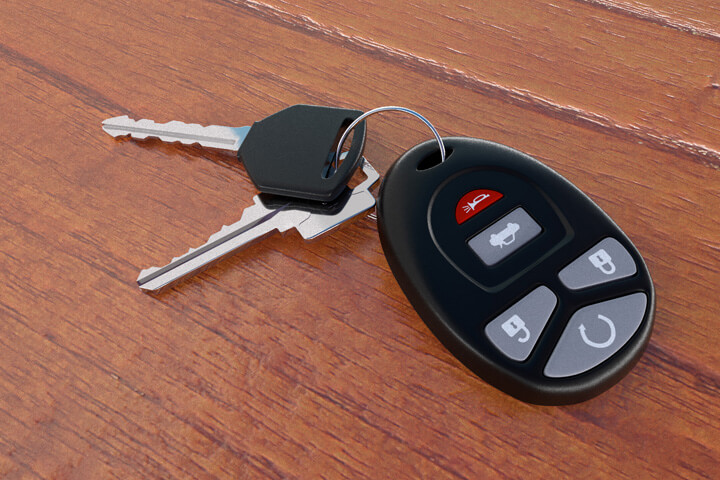Navigating the world of car purchasing can be daunting, especially when you’re not entirely sure who to trust. Unfortunately, not all car dealerships operate with the customer’s best interest at heart. Being aware of the signs that indicate a car dealership scam can save you both money and stress.
1. **The Disappearing Financing Act**: One of the most common scams involves the ‘disappearing financing’ act. After purchasing a car, you might suddenly receive a call from the dealership claiming your financing was not approved, insisting you opt for a more expensive loan. Secure your financing independently before stepping foot in a dealership to avoid this trap.

2. **The Low Credit Score Scam**: Dealers might falsely inform you that your credit score is lower than it is to justify a higher interest rate. Before heading to the dealership, check your score with all three major credit bureaus so you can confidently challenge any false claims.

3. **Making You Pay For Dealer Prep**: Beware of the ‘dealer prep’ fee, which is often an unnecessary expense added to your bill. Carefully review all charges on your purchase receipt and ask questions about anything that seems unclear or unwarranted.

4. **Avoiding Discussion of Monthly Payments**: A dealer might focus solely on monthly payments instead of discussing the total cost of the car. This tactic can lead to a longer loan term, costing you more in the long run. Insist on discussing the overall price of the vehicle.

5. **Bait-and-Switch With Advertised Deals**: Advertisements boasting incredible deals often come with fine print that disqualifies most buyers. Upon arrival at the dealership, you might find that the deal is not available to you. Always read the fine print and question any discrepancies.

6. **Interest and Taxes On Rebates**: Rebates are appealing, but some dealers might try to add interest or taxes on them. Negotiate as if the rebate doesn’t exist until it comes time to close the deal, ensuring it’s applied correctly to lower your purchase price.

7. **Get Pre-Approved for Financing**: Before you even set foot in a dealership, secure your own financing through a bank or credit union. This gives you a clear budget and prevents dealers from pressuring you into more expensive financing options. Plus, it gives you the upper hand in negotiations as you’re no longer dependent on dealer financing.

8. **Research the Dealer**: Just as you would read reviews before dining at a new restaurant, take the time to investigate the dealership’s reputation. Look for reviews online, check with the Better Business Bureau, and even ask around in local forums. A history of complaints or unresolved issues can be a red flag that it’s best to take your business elsewhere.

9. **Bring a Friend or Family Member**: Two heads are better than one, especially when making a major purchase. A second opinion can help catch red flags you might miss, and having someone with you can make it easier to resist high-pressure sales tactics. It’s a simple step, but it can save you from potential pitfalls.

10. **Ask for a Detailed List of Fees**: Before signing anything, ask for a breakdown of all fees associated with your purchase. Some dealerships might try to sneak in extra charges, so it’s crucial to know exactly what you’re paying for. Don’t be shy about questioning any fees that seem excessive or unnecessary.

11. **Insist on a Vehicle Inspection**: Always insist on a pre-purchase inspection by a trusted mechanic. This ensures that there are no hidden issues with the car that could cost you down the line. A reputable dealer will have no problem with this request, and if they do, it’s a signal to walk away.

12. **Use Secure Payment Methods**: When it comes time to make a payment, avoid methods like wire transfers or payment in gift cards. These are harder to trace and recover if something goes wrong. Stick to more secure options like credit cards or cashier’s checks to ensure you have a paper trail.

13. **Verify the VIN**: Before purchasing, always verify the Vehicle Identification Number (VIN) with a trusted service like Carfax. This will provide you with the car’s history and help you spot any discrepancies. It’s a small step that can prevent big headaches down the road.

14. **Trust Your Instincts**: Finally, never underestimate the power of your gut feeling. If something doesn’t feel right, it probably isn’t. Don’t let the excitement of buying a new car cloud your judgment. Take a step back, reassess, and don’t hesitate to walk away if necessary.

As you prepare to navigate the car buying process, remember these tips to protect yourself from scams. Buying a car is a significant investment, and by being informed and vigilant, you can ensure that your experience is a positive one. Let these strategies guide you, and drive away with both your new car and peace of mind.
Related posts:
The Dirty Dozen: 12 Signs The Car Dealership Is Ripping You Off
How to Spot the Signs of a Car Dealer Scam
12 Possible Red Flags or Signs of a Scam When Buying a Car






